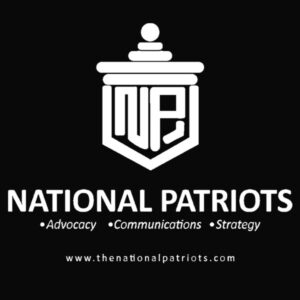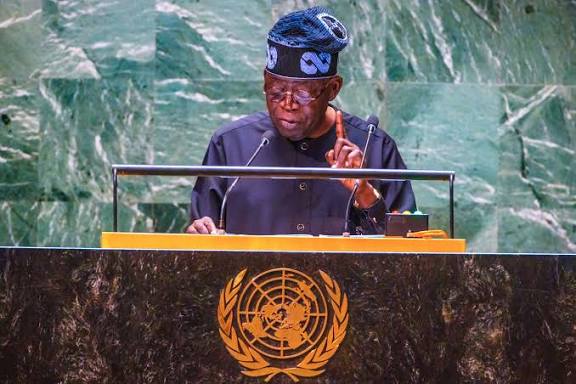By Princess Gloria Adebajo-Fraser MFR.
the National Patriots.
4th November 2025
A Moment of Diplomatic Reckoning
Nigeria stands at a crucial diplomatic crossroads.
Following the controversial decision by former U.S. President Donald Trump to redesignate Nigeria as a Country of Particular Concern (CPC) for alleged persecution of Christians, the absence of appointed ambassadors in key nations has created a dangerous vacuum in Nigeria’s foreign representation.
Into that vacuum, businessmen and self-styled intermediaries like Massad Boulos—Donald Trump’s in-law and a Lebanese-Nigerian entrepreneur—have been romantically portrayed as “bridges” to Washington. But the truth, measured against international law and diplomatic convention, tells a very different story.
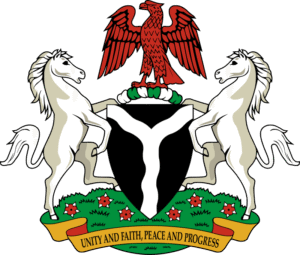
Boulos: A Symbol of Misplaced Reliance
Massad Boulos’s recent appointment as Special Adviser on African Affairs has raised eyebrows across diplomatic circles. While the title may sound strategic, it carries no statutory authority, no diplomatic immunity, and no accreditation under the Vienna Convention on Diplomatic Relations (1961).
Simply put, Boulos has no legal or procedural standing to represent Nigeria before the White House, Congress, or the U.S. State Department. His role, at best, is advisory and commercial—aligned with his own business interests rather than Nigeria’s foreign-policy imperatives.
> “Foreign policy must be conducted by professionals, not proxies,” remarked Dr. Bolaji Akinyemi, Nigeria’s former Foreign Minister and one of Africa’s most respected diplomats.
“No serious nation leaves its global image to the goodwill of businessmen.”
President Bola Ahmed Tinubu, renowned for pragmatism and reform, must now confront this diplomatic gap head-on.
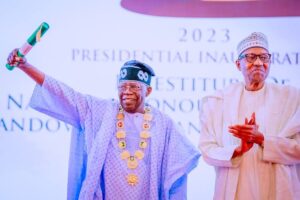
The Cost of Absence: Silence as a Strategic Failure
Nigeria currently lacks accredited ambassadors in several major capitals—including Washington, London, Ottawa, Tokyo, and Paris.
The result has been a collapse in real-time communication just when Nigeria most needs to be understood, defended, and respected.
In Washington, this vacuum allowed lobbyists, diaspora agitators, and partisan NGOs to dominate the narrative—culminating in Trump’s unilateral and misinformed CPC designation.
Had a seasoned Nigerian ambassador been in post, U.S. officials and Congress would have received firsthand briefings clarifying that Nigeria’s crisis is about insurgency, not intolerance.
Diplomatic history shows the cost of such gaps.
In 2003, Iraq’s absence of experienced diplomats in Washington helped cement the false WMD narrative that justified an invasion.
By contrast, nations such as Turkey and Egypt successfully resisted external censure by maintaining constant ambassadorial engagement with Western governments during their internal crises.
Ambassadors: The Legal Voice of Nations
Under the Vienna Convention (Articles 3–7), ambassadors are the official channels of communication between sovereign states.
They carry full powers (pleins pouvoirs) to negotiate, clarify, and protect national interests.
Host nations are obligated under Article 41 to engage with them officially—a right Boulos or any unofficial envoy does not possess.
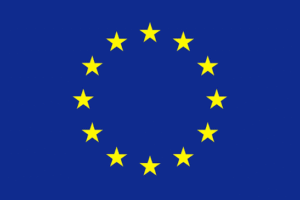
The United States, the UK, and other G7 nations conduct sensitive matters only through accredited diplomats, a safeguard ensuring accountability, confidentiality, and protocol.
> As the U.N. Charter asserts in Article 2(1):
“All Members shall respect the sovereign equality of all its Members.”
This equality is upheld through ambassadors—not businessmen or personal intermediaries.
When Politics Pollutes Diplomacy
Nigeria has a history of mixing political patronage with diplomacy, often to its detriment.
The 2020 scandal involving Justice George Oguntade, a non-career appointee as High Commissioner to the UK, underscored how protocol breaches and poor judgment can tarnish the nation’s image abroad.
Non-career diplomats frequently lack the technical depth, bureaucratic discipline, and network leverage required to navigate complex systems like Washington or Brussels.
Career diplomats, by contrast, have decades of experience negotiating security cooperation, trade policy, and crisis management.
They understand the unspoken languages of statecraft—discretion, persuasion, and reciprocity.
> “A professional diplomat represents the state, not himself,” wrote British historian Harold Nicolson.
“He must be invisible in personality, visible only in purpose.”
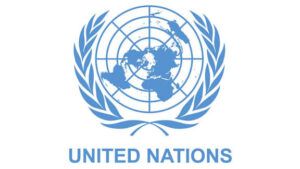
That timeless lesson is exactly what Nigeria must heed now.
Comparative Lessons: How Other Nations Rebounded
Several nations have faced—and overcome—similar diplomatic crises through professional envoys:
Pakistan (2005–2007): When accused of harboring militants, Islamabad dispatched seasoned diplomats to Washington to engage Congress and think tanks, eventually softening sanctions.
Sudan (2019): Following human-rights censure, its technocratic ambassador built trust with Western agencies and restored humanitarian cooperation.
Ethiopia (2021): Despite civil conflict, its professional corps successfully defended its sovereignty at the U.N. Security Council through sustained dialogue.
In all cases, career ambassadors were the turning point.
Nigeria’s Way Forward: Diplomacy by Professionals
Nigeria’s current crisis demands the same level of professional urgency.
The absence of ambassadors during a global reputational challenge is not just an oversight—it is a strategic liability.
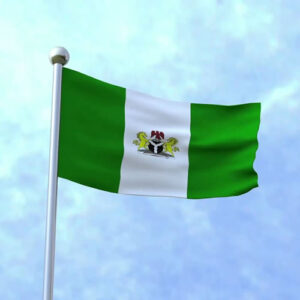
To reverse this trend, HeadlineNews.News recommends:
Immediate appointment of career ambassadors to all G7 capitals—the U.S., UK, Canada, France, Germany, Italy, and Japan—within 24 hours.
Formation of a High-Level Diplomatic Task Force led by the Ministry of Foreign Affairs and the National Intelligence Agency (NIA) to manage perception and counter misinformation.
Deployment of politically appointed envoys only to African nations, where informal influence and cultural proximity are genuine assets.
Mandatory 60-day briefing reports from ambassadors on bilateral sentiment, media narratives, and policy alignment.
Economic and Security Stakes
Nigeria’s global image directly affects investment, aid, and defense partnerships.
A CPC designation, if left unchallenged, could deter trade and humanitarian support worth over $12 billion annually.
Conversely, effective diplomacy—led by accredited professionals—has historically turned crises into opportunity.


South Korea, for example, leveraged its diplomatic corps after the 1997 financial crisis to secure IMF and G7 assistance that fueled its later economic miracle.
Nigeria can achieve similar redemption through smart diplomacy, not public-relations gimmicks.
Diplomacy Is Not Business
Massad Boulos may have personal access to the Trump family, but access is not influence, and influence is not diplomacy.
No businessman, regardless of proximity, can replace an ambassador’s formal authority, immunity, or credibility.
The Vienna Convention, ratified by both the U.S. and Nigeria, recognizes only accredited envoys as the legitimate voices of nations.
Every day Nigeria delays appointing such professionals, it risks losing control of its own narrative.
> “Silence in diplomacy is rarely golden,” notes international-law expert Prof. Akin Oyebode.
“It often becomes a vacuum others rush to fill—usually to your disadvantage.”
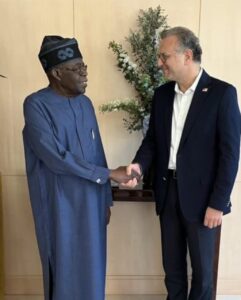
(In the Picture is President Tinubu and representative of President Trump ,Mr Boulos )
03 November, 2025
THE BOULOS DIPLOMATIC BRIDGE TO THE WHITE HOUSE
By Prince Adeyemi Shonibare
In the intricate weave of global diplomacy, sometimes the most unexpected threads form the strongest connections. Nigeria may have found such a thread through the Boulos family — a name that has become synonymous with commerce, enterprise, and now, possibly, diplomacy. With Michael Boulos married to Tiffany Trump, the daughter of President Donald J. Trump, a new and subtle channel of relationship exists between Abuja and Washington — one that could become a quiet bridge in a noisy world.
The Boulos family’s Nigerian story is one of longevity, investment, and faith in a country that has tested even the most patient investors. Established in the mid-20th century, the Boulos Group has been a pillar of Nigeria’s industrial and trading history. From motorcycles to heavy equipment, the Boulos name has ridden through decades of Nigeria’s economic turbulence — yet remained firmly planted in its soil. Their businesses have created jobs, expanded distribution networks, and contributed significantly to the Nigerian economy — all while maintaining deep community ties.
Now, with a member of the family sitting at the table of American power, the Boulos connection represents more than just a familial bond. It is, in many ways, a diplomatic opportunity — one that Nigeria must not ignore.
President Donald J. Trump’s administration has recently raised concerns over Nigeria’s internal governance, corruption, and insecurity — even threatening sanctions or “stronger actions.” Yet these issues are complex and deeply rooted. Successive governments have battled to rebuild what was left of Nigeria’s security infrastructure after decades of neglect and mismanagement. During the sixteen years of PDP rule, billions were reported diverted — including the infamous $2 billion security fund scandal under the Jonathan administration, when resources meant for weapons were allegedly used to finance elections instead.
The administration of the late President Muhammadu Buhari deserves recognition for its courage and resolve. For eight years, his government fought a lonely battle to restore integrity to governance and dignity to the Nigerian armed forces. Today, under President Bola Ahmed Tinubu, the efforts continue. The current administration is re-jigging the armed forces, increasing troop strength, and expanding intelligence capability. The government has shown a strong will to confront insecurity head-on, strengthen the economy, and open the country for genuine investment.
If President Trump truly means well for Nigeria and Africa, America must act as a partner, not a provocateur. For eight long years under President Barack Obama, Washington refused to sell or donate critical military hardware to Nigeria — citing human-rights concerns — even as Boko Haram ravaged the northeast. That policy drove Nigeria to seek help from other powers, which America often viewed with suspicion.
Now, with Massad Boulos, Michael’s father, serving as Senior Advisor for Africa in the Trump administration, the equation has changed. His portfolio includes engagement with African nations and promoting American private-sector investments across the continent. Nigeria, through the Boulos family’s deep-rooted presence, has an opportunity to transform this familial bond into a credible diplomatic bridge. This could open doors for renewed defense cooperation, trade expansion, and joint counter-terrorism initiatives built on mutual respect.
However, beyond policy and politics lies another conversation — a domestic one.

To those who still mourn the loss of their beloved Goodluck Ebele Azikiwe Jonathan to the late President Muhammadu Buhari, and who so passionately resent President Bola Ahmed Tinubu — this is a gentle word. Many have nursed political heartbreak, convinced that Tinubu’s political strategy paved the way for Buhari’s ascent and their beloved Jonathan’s fall. Some have carried that resentment into new political alliances, believing they could find a Voltron in Peter Obi to avenge the past — hoping, somehow, that Nigeria would be invaded, her sovereignty broken, and her president shipped away.
Sorry, dears. That will not happen.
Nigeria is a sovereign nation. Nation to nation. President to president. Diplomacy to diplomacy. Disagreements, yes — but solutions will be found through dialogue, through engagement, through strength. Those who finance terror and those who profit from instability — whether at home or abroad — will be exposed and brought to justice.
But let it also be said with humility and hope: we must extend an olive branch of peace. Let us heal as a people. Let us embrace President Tinubu not for himself alone, but for Nigeria. Support for the president is support for the nation’s continuity, its institutions, and its stability. This is no time for wailing or wishing doom; it is time for building, praying, and uniting.
Let us pray for Nigeria. Love Nigeria. And may the good of Nigeria — the beauty, the potential, and the promise — happen to you.
Because, in the final analysis, nations are not saved by noise or nostalgia, but by unity, purpose, and faith in their shared destiny.
Nigeria stands. Nigeria will thrive.
And through the Boulos Bridge, perhaps — the world will finally listen.


The National Patriots.
Conclusion: Restore the Chain of Voice
President Tinubu’s government has taken bold steps to reform the economy, attract investment, and reposition Nigeria as Africa’s moral and economic leader.
That progress must not be undermined by a void in representation or misplaced faith in unelected intermediaries.
Diplomacy is Nigeria’s first line of defense—and career ambassadors are its frontline soldiers.
To preserve the nation’s dignity, credibility, and influence, the President must immediately appoint ambassadors to all G7 countries and restore Nigeria’s official voice to the global stage.
> “Nations fall not for lack of strength, but for lack of presence,” said Princess Gloria Adebajo-Fraser, MFR, President of the National Patriots Movement of Nigeria.
“Nigeria must speak for itself through trained, loyal diplomats—not through merchants of access.
Our sovereignty deserves defenders with credentials, not connections.
Only then will the world hear the true Nigerian story.”
Princess Gloria Adebajo-Fraser MFR.
The National Patriots.
